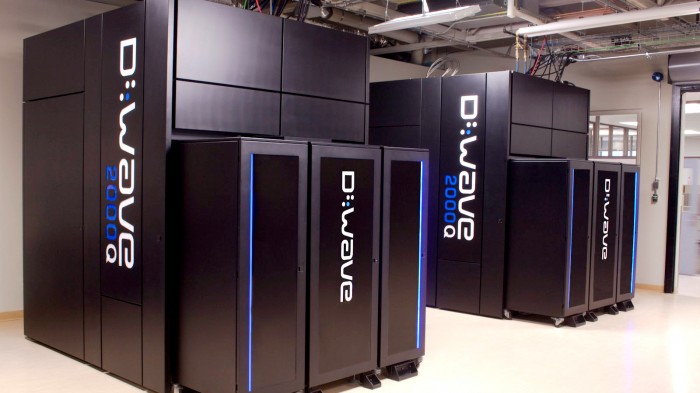Can a Powerful New Quantum Computer Convince the Skeptics?

The quantum computing company D-Wave Systems has announced that its latest device features twice the computing capacity of its previous model, which it claims makes it incredibly fast compared to conventional hardware. But even so, the company still faces a struggle in convincing parts of the scientific community of its worth.
D-Wave’s new 2000Q quantum computer contains, appropriately, 2,000 qubits, the quantum equivalent of binary bits. That’s twice as many as the previous generation of its hardware, which has already found a home in labs at Lockheed Martin and a collaborative venture between NASA and Google, among others.
The new model is, according to D-Wave, no slouch. The company has tested its performance on specialized problems that are well-suited to quantum devices—such as optimization—and compared them to results achieved by similar algorithms running on CPU- and GPU-based devices. It claims to beat a single CPU and a 2,500-core GPU system by a factor of at least 1,000 in terms of computation time.
Some members of the quantum computing community will be skeptical of the claims. When D-Wave unveiled its first device, some scientists questioned whether it was true quantum computing. Google researchers last year claimed to have demonstrated that the device really works, but, as our own Tom Simonite pointed out at the time, the algorithms used during that demonstration may have favored D-Wave over the conventional computer it was competing against.
And as Nature explains, the relatively simple qubits used by D-Wave—which have allowed it to build the first commercially available quantum computers—are fragile, and lose their quantum states more easily than those being developed in other labs. That leads some scientists to doubt that the D-Wave devices will ever provide the exponential leap in computational power promised by quantum computing.
Even so, the new computer already has a buyer. D-Wave says that a company called Temporal Defense Systems has purchased a 2000Q device, valued at $15 million, and intends to use it for cybersecurity applications. And numerous research groups are using the company’s older devices.
Meanwhile, other researchers—at Google, Microsoft, IBM, and many universities—are working hard to develop their own quantum computers, but have yet to produce a commercial product. For its part, D-Wave says that it plans to keep doubling the number of its qubits in its devices every two years—whatever researchers have to say.
(Read more: Nature, “Google Says It Has Proved Its Controversial Quantum Computer Really Works,” “Google’s Quantum Dream Machine,” "Three Questions with the CEO of D-Wave")
Keep Reading
Most Popular
Large language models can do jaw-dropping things. But nobody knows exactly why.
And that's a problem. Figuring it out is one of the biggest scientific puzzles of our time and a crucial step towards controlling more powerful future models.
How scientists traced a mysterious covid case back to six toilets
When wastewater surveillance turns into a hunt for a single infected individual, the ethics get tricky.
The problem with plug-in hybrids? Their drivers.
Plug-in hybrids are often sold as a transition to EVs, but new data from Europe shows we’re still underestimating the emissions they produce.
Stay connected
Get the latest updates from
MIT Technology Review
Discover special offers, top stories, upcoming events, and more.